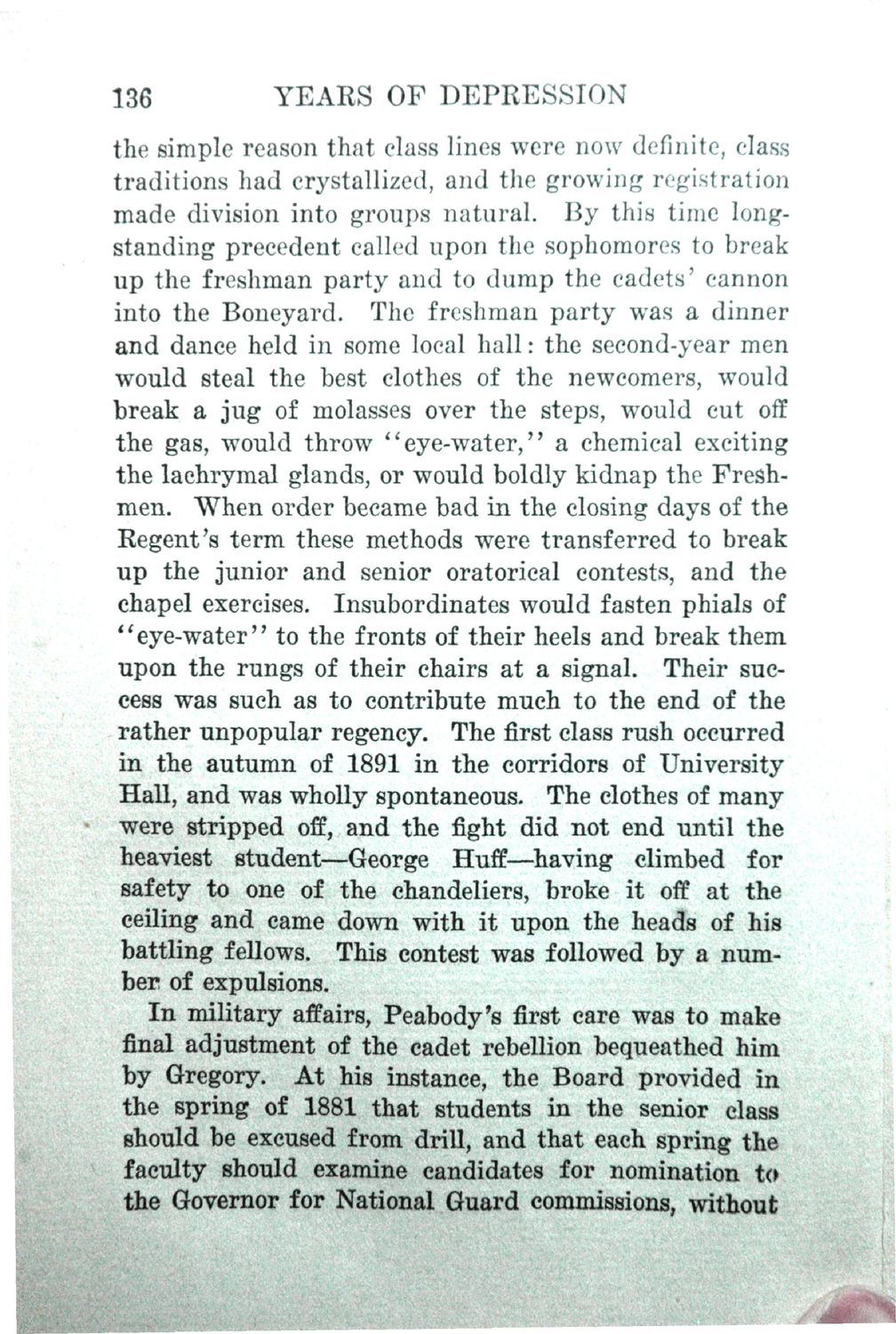| |
| |
Caption: Book - History of the University (Nevins)
This is a reduced-resolution page image for fast online browsing.

EXTRACTED TEXT FROM PAGE:
136 YEARS OP DEPRESSION the simple reason that class lines were now definite, class traditions had crystallized, and the growing registration made division into groups natural. By this time longstanding precedent called upon the sophomores to break up the freshman party and to dump the cadets' cannon into the Boneyard. The freshman party was a dinner and dance held in some local hall: the second-year men would steal the best clothes of the newcomers, would break a jug of molasses over the steps, would cut off the gas, would throw "eye-water/' a chemical exciting the lachrymal glands, or would boldly kidnap the Freshmen. When order became bad in the closing days of the Regent's term these methods were transferred to break up the junior and senior oratorical contests, and the chapel exercises. Insubordinates would fasten phials of "eye-water" to the fronts of their heels and break them upon the rungs of their chairs at a signal. Their success was such as to contribute much to the end of the rather unpopular regency. The first class rush occurred in the autumn of 1891 in the corridors of University Hall, and was wholly spontaneous. The clothes of many were stripped off, and the fight did not end until the heaviest student—George Huff—having climbed for safety to one of the chandeliers, broke it off at the ceiling and came down with it upon the heads of his battling fellows. This contest was followed by a number of expulsions. In military affairs, Peabody's first care was to make final adjustment of the cadet rebellion bequeathed him by Gregory. At his instance, the Board provided in the spring of 1881 that students in the senior class should be excused from drill, and that each spring the faculty should examine candidates for nomination to the Governor for National Guard commissions, without
| |